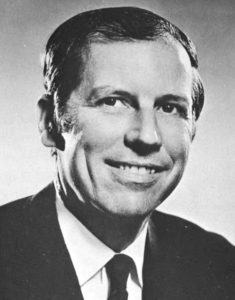 Former Mississippi Governor William Winter, who served as National Civic League Chair during the late 1980s, died January 22 at the age of 97.
Former Mississippi Governor William Winter, who served as National Civic League Chair during the late 1980s, died January 22 at the age of 97.
Known in Mississippi as the “Education Governor,” Winter exemplified a generation of post segregationist southern politicians who hoped to transform the region by emphasizing open government, economic development, education reform and an end to Jim Crow laws.
“Governor William Winter was a spectacular and transformative leader in his home state of Mississippi and in our nation,” said Chris Gates, a former National Civic League president. “The National Civic League was lucky to have him as the chair of our board. His focus on the issues surrounding racial equity put him decades ahead of his time. He was also a kind and caring mentor to me.”
Born in a small town in Mississippi, Winter joined the U.S. Army in the early 1940s and was assigned training duties. The armed forces were still segregated in those years, but the regiment assigned to Winter had both Black and White officers. It was his experience working alongside Black officers (and the teachings of an influential college history professor) that would inform his decision to oppose the entrenched racism in his home state.
He first ran for governor in 1967 but was defeated by the segregationist candidate, John Bell Williams. Although he was considered a racial “moderate” at the time, he was treated to death threats from the Ku Klux Klan. Winter ran again in 1975 and lost once more. Finally, he was elected in 1979.
As governor he campaigned tirelessly for an education bill that would revamp Mississippi’s less than stellar public schools. At the time, Mississippi was the only state with no public kindergartens, a legacy of its leaders’ opposition to the Brown v. Board of Education ruling.
Thwarted twice in his efforts to pass an education bill, Winter and his wife stumped the state giving dozens of speeches too build public support for better schools. Shortly before Christmas of 1982, the bill passed. The Education Reform Act of 1982 was described by political observers as a “Christmas Miracle.”
After his one term (the state had term limits for governor in those years) he was asked to co-chair President Clinton’s Advisory Board on Race. In 2001, he led a failed effort to remove the Confederate battle flag from the state flag. He received a John F. Kennedy Profiles in Courage Award in 2008. It’s fitting that Winter lived long enough to see Governor Tate Reeves sign a law removing the confederate emblem from the state flag in June of 2020.
Chris Gates recalled a memorable visit with Winter in Jackson, Mississippi. “I’ll never forget the lunch we had at an old school restaurant where he was clearly revered,” he said. “He convinced me to try grits for the first time in my life and the cheese grits were spectacular, I became a fan. But most amazing was the parade of staff and patrons who came by our table to shake his hand, including all of the cooks and dishwashers from the back of the house. It was incredibly moving to see the regard in which he was held.”



